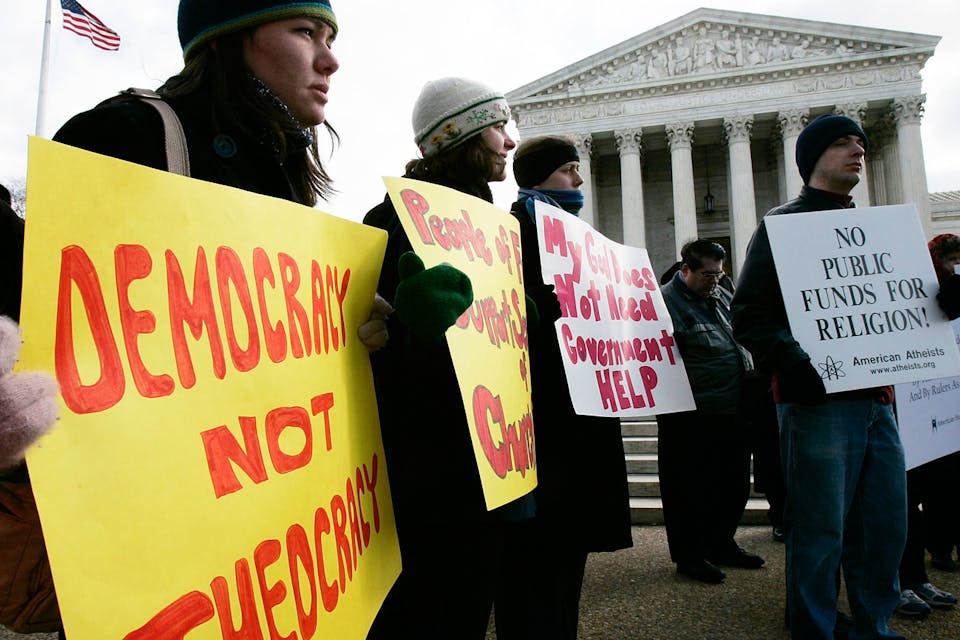
August 25, 2016
As America Grows Less Religious, Can the Tocqueville Model Still Work?
That is: can the separation of church and state function for an increasingly unchurched people whose secular passions rely on the exercise of state power?
I want to thank David E. Bernstein, Wilfred McClay, and Peter Berkowitz for their kind words and thoughtful responses to my essay. In effect, all three suggest that, for American liberals and progressives, anti-discrimination is becoming nothing short of a religion, albeit one that denies it. More: it is becoming an established religion—a “secular theocracy,” in McClay’s words—and an official doctrine enforced by government.
David Bernstein poses three highly pertinent questions: how did we get to where we are today? Are things really so bad, or are there rays of hope? And what does today’s situation mean for America’s Jewish community? My comments will follow his order while drawing freely on the ideas and formulations of all three respondents.
How did we get here? Wilfred McClay reminds us that, of late, large-scale religious fights seem to be breaking out all around the world. So the question really is whether America will remain an exception—the place where, as he writes with a nod to Tocqueville, “religious belief and practice have generally flourished . . . because they are voluntary and have not had to rely on a religious establishment to protect them.”
Responses to August ’s Essay
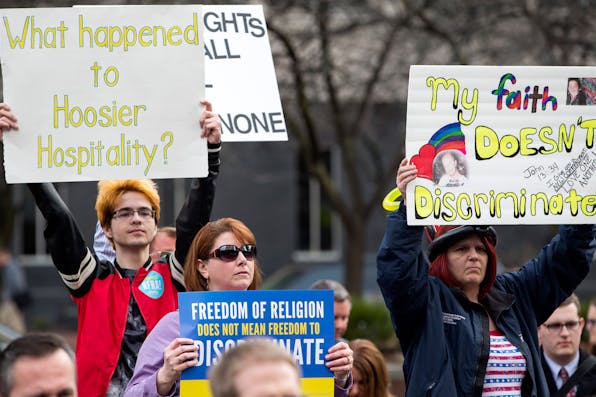
August 2016
How Anti-Discrimination Became a Religion, and What It Means for Judaism
By David E. Bernstein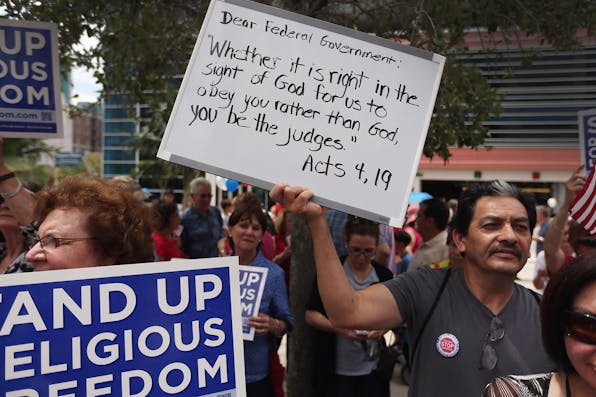
August 2016
The Rise of the Secular Theocracy
By Wilfred M. McClay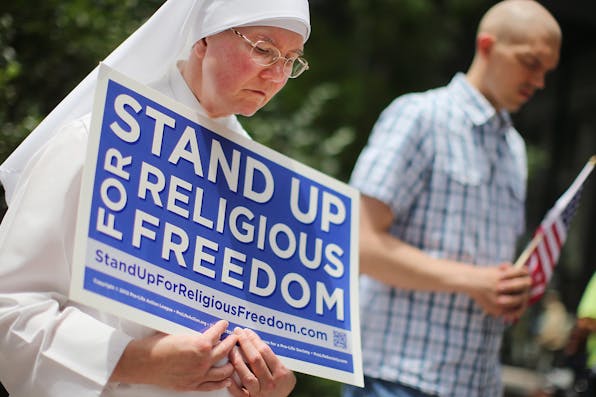
August 2016
The Battle for Religious Liberty Will Be Won on the Field of Education
By Peter Berkowitz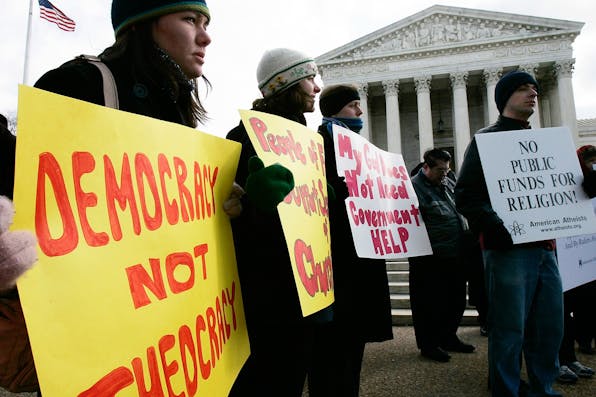
August 2016
As America Grows Less Religious, Can the Tocqueville Model Still Work?
By Richard Samuelson